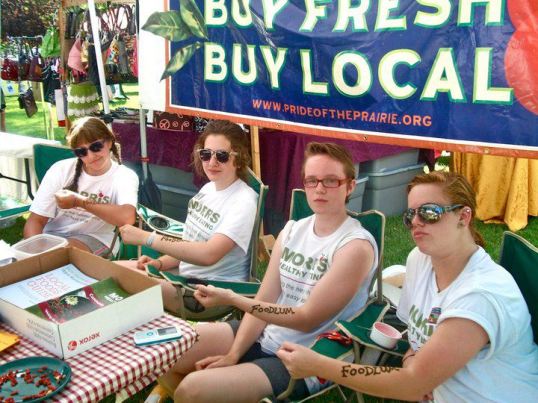How I Turned my Garbage Can into a Compost Bin
I just got published in my school paper! Here’s the article.
As Morris students, most of us can agree that we dig sustainability in its many diverse forms, whether it be the feeling of pride acquired when gazing at wind turbines, growing free food with the organic garden club or trying to go to the bathroom in Imholte to use their water conserving toilets. My passion has lately been trying to live without creating garbage, which I’ve been working on for the past seven months. While I’m hardly one hundred percent successful in this endeavor, I’ve found that the key to living without pads, paper plates and the plastic wrapping surrounding cheese is not about convenience, time or money, but willingness to examine conventional habits and trying out new manners of existence.
The first challenge to overcome was how to define waste. Energy and water waste seemed like too much to consider on top of physical waste, so I focus on anything that could eventually end up in a landfill.
I have found that there are two main areas that are easiest to reduce waste in: food and toiletries. I converted my boxed and packaged life into a pantry of root vegetables and stunning glass jars filled with bulk goods, which are mostly from the Pomme de Terre Food Co-op. This is where I get my baking goods, rice, pasta, oatmeal, coffee, other bulk goods and some fresh produce. I can also return egg cartons to the Co-op, which are then returned to local farmers for reuse. La Tienda and Willie’s also carry produce without packaging, as does the local Farmers’ Market from June to September. During the summer, I grew a large amount of food in the Student Organic Garden as well. Unpackaged food often requires a bit more time to prepare, but I’ve found that baking bread and cooking large amounts of food on weekends makes for a peaceful way to spend time with friends and creates ample leftovers for the next few days.
If you have baking soda and Dr. Bronner’s soap, you’re set for all the cleaners you could ever imagine, whether that be hair, teeth or toilet bowls. Liquid Dr. Bronner’s soap is sold at the Co-op in bulk, as is baking soda. There are also a surprising amount of alternatives to objects with planned obsolescence that can easily be found online, such as compostable toothbrushes, toothpaste that comes in tablet form with recyclable packaging, bar shampoo, reusable feminine products and spray deodorant in recyclable cans. There are plenty of others out there who are determined to curb the flow of trash that we create every day with unthinking ease.
With the great strides that have been taken in renewable energy here, it is time to turn our attention to what happens with our waste and what we can do to reduce and even eliminate it, on both individual and institutional levels.



